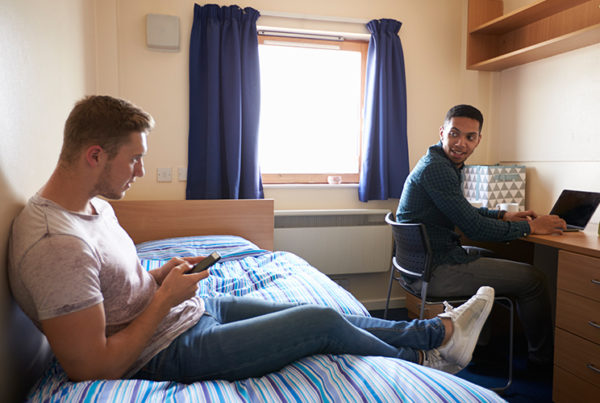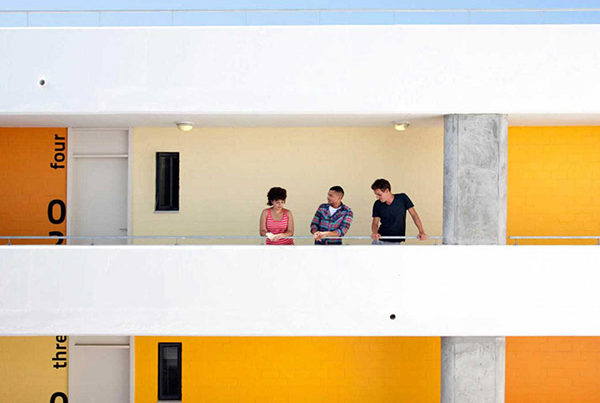It is almost that time... You’ve spent eighteen years raising a child into a capable young adult and it is time to let them take on the world of university on their own. As a parent, this means you’ve probably already started wondering about where your child (or children) will live, now that they’re going to be away from home.
You’ve also probably started having concerns, and more than a little bit of anxiety around aspects of student accommodation such as safety, security, location, and price. Well, we have some tips to help guide you along the process of choosing the best possible place for your son/daughter to live while they complete their course at a university in Cape Town.

University Residences
University Residences are usually a parent’s first choice, as they offer students on-campus accommodation that’s close to their classes.
Residences are also considered quite safe, as dorm buildings are often monitored by security staff, CCTV cameras, and sometimes fingerprint scanners. Having access to the on-campus experience is also usually a strong motivating factor for parents and young adults alike.
Mentorship is also one of the key offerings that university residences provide but student accommodation or private accommodation might not.
University is a time where a lot of change takes place in one’s life, and it can help to have mature and well-prepared support around when you need to make tough decisions or you’re battling with something.
Residence blocks will have student bodies, wardens, and dedicated mentors or student advisors that you can chat to if you ever need help with anything. Similarly, universities are required to have on-campus counselors to assist students through stressful or traumatic periods. This is definitely a beneficial point to keep in mind when picking the right kind of student accommodation.
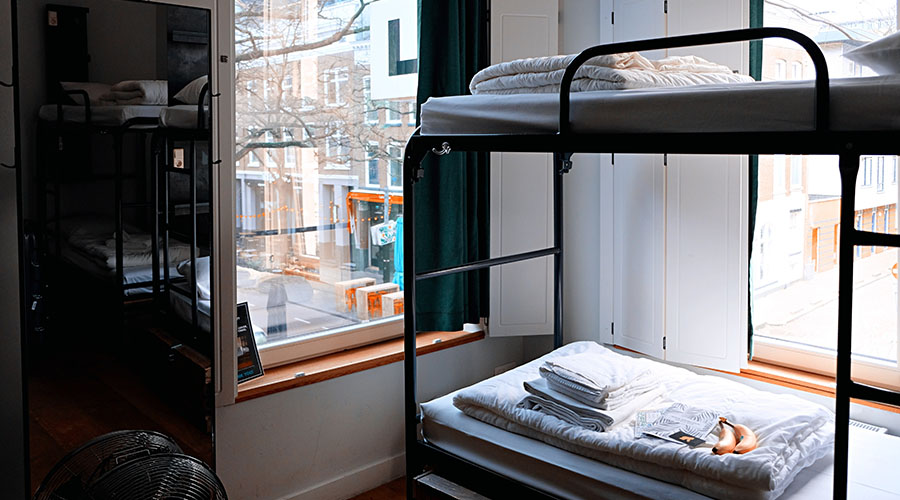
This feels like the true “student experience” and provides a platform for students to gel and make new friends.
University residences are sought-after, and only those with high marks are likely to be accepted to stay in a university residence while they complete their course(s). Because it’s the first and most obvious option for somewhere to stay during your child’s studies, you should have backup plans in case this opportunity isn’t available.
What to look out for:
University residences are usually fairly safe, with security staff teams, CCTV cameras, and reception areas for visitors checking in. But if you’re walking around really late at night, it’s always a good idea to keep some form of protection around as we still live in South Africa.
One of the key things to look out for and keep in mind is who your block warden is as well as who forms part of the student body that manages residence buildings and works as a go-between for the university and students, relating to student interests, needs or academic matters. Knowing who your warden is, and who forms part of the student body is important as these are your best go-to-people for any serious issues while living in residence, should they arise.
Living in residence means that making friends is often easier. That’s why one of the things we recommend that you look out for are the other students staying on your floor.
Building a natural support system, with like-minded students that you can bond with, is the best way to start feeling comfortable in your new residence block. Having relationships with residents on your floor is fantastic when you have a desperate favour, or if it’s just been a long day and you’re in need of some casual conversation.
Amenities
University residences will provide basic amenities for students to benefit their daily lifestyles.
Some essentials include Wi-Fi and laundry facilities and you might even be lucky enough to have access to a parking space – although this may be unlikely for your first year of study.
Depending on your residence, you may also have common lounge areas where you can meet other students and relax with your friends.
We cover some of the essentials below.
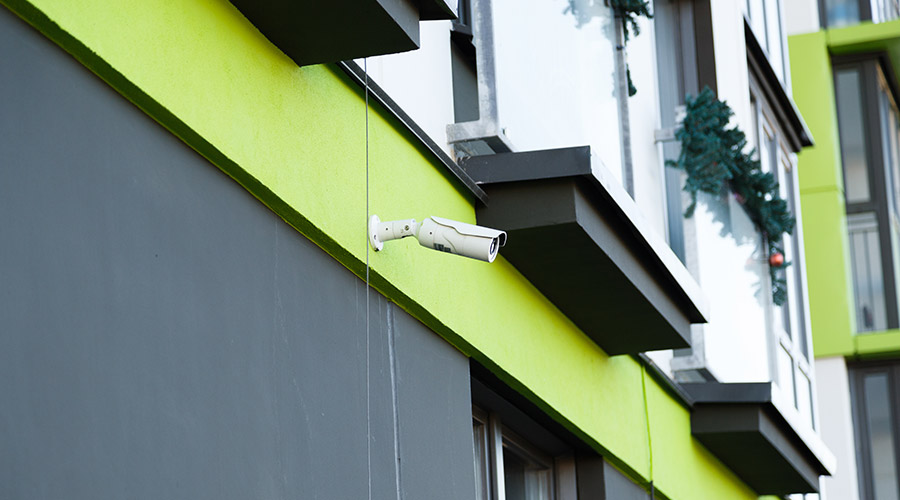
WiFi
Your university will usually offer free WiFi, at least for certain sites, and maybe with a usage cap per student in place. So, unless you’re a heavy gamer or downloader, you probably won’t have to worry.
The WiFi is normally accessible throughout buildings on campus, but it wouldn’t hurt to have a mobile data bundle on standby for long walks to and from classes and for extra messaging in general.
Parking
On-campus parking is an important consideration, but as a first-year moving into a new residence, you will probably not have the first or best pick of parking spaces.
In some cases, campuses don’t provide first-year students with parking, and only staff and second years and above will have access to parking bays and structures on campus.
Parking infrastructure across most Cape Town public university campuses is limited, so the best idea is to find a way to create a lift club or roster, or arrive super early in the morning to ensure you find a parking space.
To park on a university campus, you will also need some form of a parking permit or registration with your university that grants you access to park on the premises most often at an additional fee.
Other
Other useful amenities to keep in mind are your access to laundry facilities, living room areas for socialising and making friends, and access to network points.
Having on-site laundry facilities is usually a common part of university residence’s infrastructure and is incredibly useful to have on-hand when the need for a fresh set of clothes or sheets arises. When your son/daughter arrives on campus, make sure that they find out where the laundry room(s) on campus are and how they operate.
Common lounges and living areas are also popular within residences, as they encourage the student lifestyle and atmosphere that university is all about. These areas often include network points, casual spaces for work, and TVs to enjoy sport or series. Here, you can probably find some of the first friends you’ll make at university.
Private residence student accommodation facilities
Off-campus student accommodation is also offered by private companies that may be affiliated with universities in Cape Town.
Choosing the right private student accommodation can depend on multiple factors. The first of these is normally price, as private accommodation facilities can be quite expensive. This price is usually influenced by the location of the premises, as well as what the facility offers to students in terms of rooms, common areas, and amenities.
It’s desirable for your child to stay somewhere close to their campus, and having private student accommodation situated close to your prospective university is a wise choice. If this isn’t entirely possible, try choosing private accommodation located near major transport services such as busses, Metrorail, and the Jammie Shuttle.
It is possible to find cheap student accommodation further away from university campuses and central Cape Town, but don’t be fooled by cheap price packages. These facilities can lack infrastructure and maintenance, along with a lack of amenities and in a location that makes it difficult to find your way to campus without quite a few hours to spare each morning for travel.
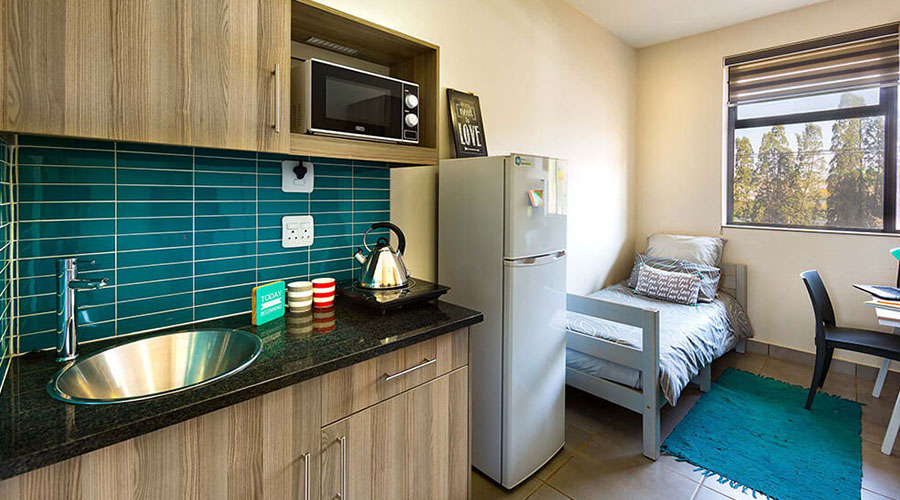
What to look out for:
Location
The location of where you plan to stay, if it’s off-campus in shared accommodation, is important.
Generally, living closer to your university is more expensive as it often involves living nearer a central hub or city, where prices for rent are higher.
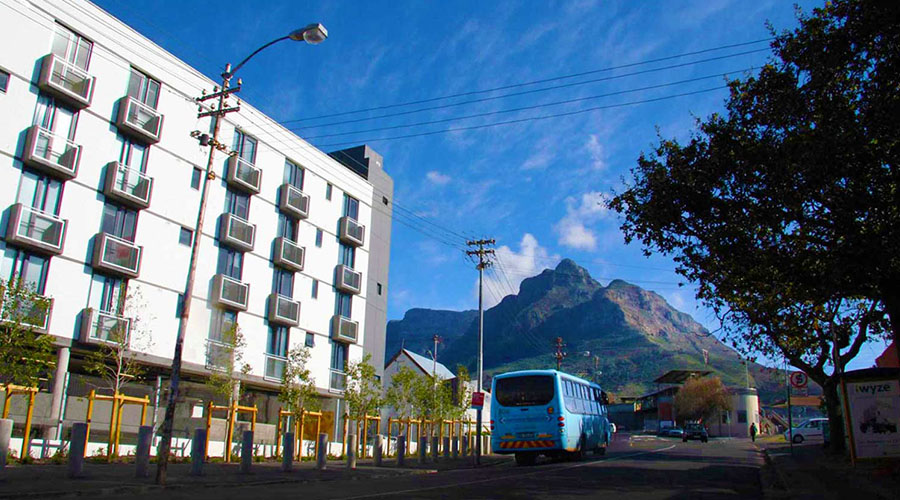
Staying a little while away from campus can help you save on rental costs, but you will still need to account for travelling expenses and how your son/daughter will get to class on time.
Sometimes, this means finding student accommodation that’s situated near public transport routes. It’s a great idea to use a quick budget, and use the ideas in this article What Can I Expect to Pay in Cape Town? to guide you.
When you’ve got this figure in mind, it might seem more appropriate to find a place closer to campus, if your travelling costs make up the difference between a cheaper and more expensive rental.
It is definitely worth paying slightly more to save money on travelling and save the time you would normally use to get to class in the morning.
Staying close to campus also means your child may have a better chance of integrating better, allowing them to get to after-hours activities or university events without hours of travelling involved. It also means that the chance of missing a last-minute deadline due to tardiness is greatly reduced.
Amenities
Private residences often have certain amenities and block features that differ from living in a flat with roommates or on your university campus.
Some private residences, like NEST, include amenities such as a gym, underground parking, lounges with DSTV and Netflix, biometric security and included Wifi
A few of these items are available in some university residences, but generally, these are sought after amenities that can make your life on a daily basis far easier. Knowing that your rental covers your water each month, or includes a data bundle for free, can help you budget effectively and improve your daily lifestyle.
WiFi
WiFi is an asset when included in any rental. Data prices are expensive, and having a set up where your son or daughter receives data free of charge on a monthly basis to use for university work and general life, is brilliant.
This will help you save hundreds of rands that would’ve gone to monthly data, and this can be used to supplement tuition payments, food, and other monthly allowances.

Of course, it’s a good idea to find out the speed of the WiFi and how many gigabytes per month you can expect to receive before making your decision. In the case of NEST, we offer 10 free gigabytes of data per month and an upgradeable package for our heavy internet users and gamers.
Underground parking
Underground parking is an asset if you own a car, and this can also save you money depending on where you park.
Certain parts of Cape Town, such as the CBD, Sea Point, Green Point, and most recently Woodstock, do not allow you to park in bays free of charge, and high tariffs are imposed on those parking for long hours during the day.
This can really have an effect on your monthly expenses, and renting parking bays in specific areas can set you back anywhere between R400-R1600.
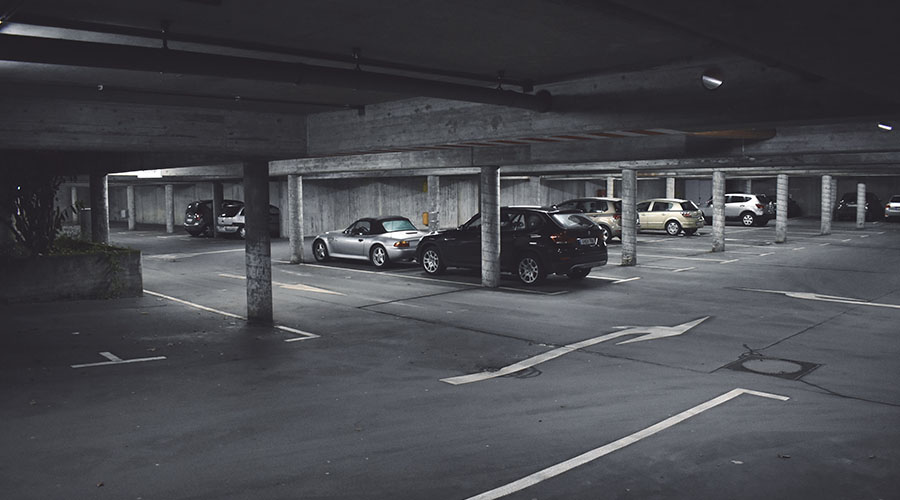
Having underground parking on-site if you own a car is a game-changer. It allows you to park safely, meaning no potential loss of damage to your property, and you can enter securely from the underground to your unit in the block.
This makes coming and going from classes and late study sessions during the week and socialising during the weekend, far easier and much safer. Other safety features to look out for include fingerprint sensors for access and whether the security staff is on duty 24/7.
Another potential cost saver is in the form of basic amenities like electricity and water. Some facilities will include these tariffs, if only just one, in their rental. Others will charge additional fees for electricity and water – which is also normal.
Finding out beforehand will help you manage your finances better and create an accurate monthly budget.
Other
Other things to keep in mind are things like visitor policies, building quality, and quiet times. What we mean by this is that you should assess the overall quality of the infrastructure and aesthetics within the building.
Visit a few different rooms, or the one you would likely stay in, and test to see if lights function, doorknobs work, taps turn on, the shower works and smaller items included in the room like kettles, toasters or hot plates also function correctly.
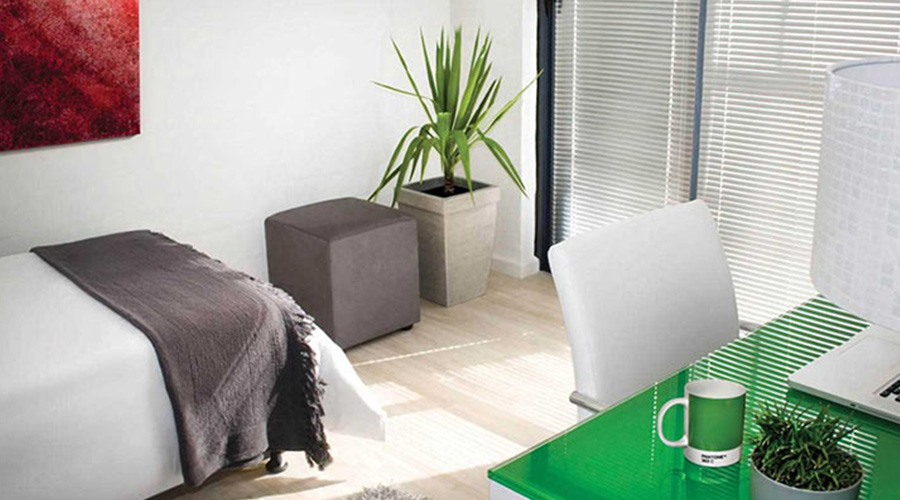
There’s nothing more frustrating than moving in somewhere only to find out that your daily life will be affected by infrastructure that doesn’t function properly, within your own flat and the block too.
An even better consideration to keep in mind is getting on good terms with the building staff. Find out if they’re helpful and friendly, by chatting to the staff and finding out what they do within the block. Having this insider knowledge will also help you make a faster decision if something needs fixing in your flat, and it needs attention from someone specific in the building staff team.
Student accommodation facilities will often have set visitation hours, quiet time periods, and sometimes opening and closing times for their underground parking structure too.
Visitation hours are important to keep in mind when you bring friends around to see your brand new flat. In some scenarios, when visitation hours are exceeded and your visitor hasn’t left yet, this can cause drama in the form of a fine or warning – which can easily be avoided.
It is also just as common to not be constrained to specific visitation hours, but this also means that people can come and go at all hours of the night, which can be disruptive for some.
Quiet time periods are periods in which members of the block must remain silent and not do things like play loud music or blast tv series throughout the halls. This usually changes depending on the days of the week, with quiet time periods starting earlier during the week as opposed to during the weekend.
Other student accommodation options
Private, shared or solo accommodation is also an option. This refers to accommodation such as private flats rented by landlords or property agents, and not by private companies specialising in the student accommodation industry.
This sort of private accommodation arrangement can be beneficial if you find the right place. Have a chat with your child’s friends’ parents to find out if they would be interested in splitting the price of renting a secure house or flat in a safe area.
This is really a budget-saving way to stay outside of off-campus accommodation if you can get enough friends together and find the right property to share.
Living in a shared flat or house sharing set up with other young professionals and students is ideal for things like splitting bills, household chores, and making the weekly grocery haul far more economical. The downside is that you will have to be okay sharing your home environment. For this, we suggest getting a good feel for your roommates, if you haven’t already, then deciding whether you’ll move in.
This kind of accommodation set up is often more fun, with a bustling household and shared dinners on the stove. Private flats and houses do, however, often come with more security risks, such as wonky gates, lack of electric fencing, and of course, no fancy fingerprint access like student accommodation.
So, observe and discuss the security of the premises before you sign on the dotted line. If it’s not quite up to standard, see if the landlord can make relevant adjustments to create a safe living environment.
To find out what else you should know before signing a lease to stay in private accommodation such as a shared flat or house, read our piece 17 things to know before you sign your first lease.
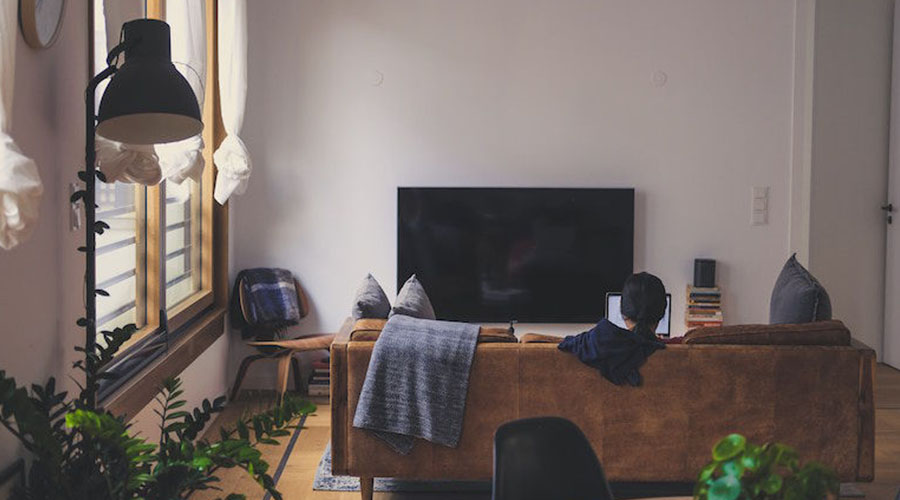
What to look out for:
Amenities
The amenities for shared housing really depend on the space you have available and what you and your roommates decide on (such as a WiFi package).
You may also have access to additional recreational facilities depending on your type of house share.
Sharing a large house with multiple parties often means you have access to amenities like a pool or garden where you can lounge with friends. This is also sometimes the case with flats in large, upmarket complexes.
WiFi
Living in a shared flat or house setup means that you will end up paying a monthly fee for internet usage. The only difference here is that you may have a few roommates to split the bill with. This either means you save a lot of money on WiFi each month, and you’re probably able to afford a great package with fast speeds.
WiFi packages aren’t very expensive when split among roommates, however, one part of the process to keep in mind is installation. If you haven’t had an internet line or fibre line installed before, this can cost almost R2 000, so try and find a supplier that will offer you free installation, at the very least on the terms that you don’t cancel for 12 months.
Parking
Parking on the premises in shared living situations can be tricky, but with enough forethought and planning, this headache can be avoided.
It’s best to keep in mind who will split the rent with you during your university years, so you can plan appropriately and pick the right place with enough parking for everyone.
Apartments and flats most often either exclude parking options entirely or offer a single parking bay included in your rental, with the potential to rent an additional bay for anywhere between R300-R1000+ depending on your area.
For shared house setups, driveway space, and whether the house has a garage will form part of your considerations for parking, along with the security of the premises and the gate that your cars are parked behind on a nightly basis.
Living at home
Some view living at home as the best of both worlds. They get the excitement of student life during the day, with the luxury of being able to return to a home environment where they feel completely comfortable and have a lot of responsibilities taken care of. Living at home is a budget-friendly option, but it does come with some sacrifices.
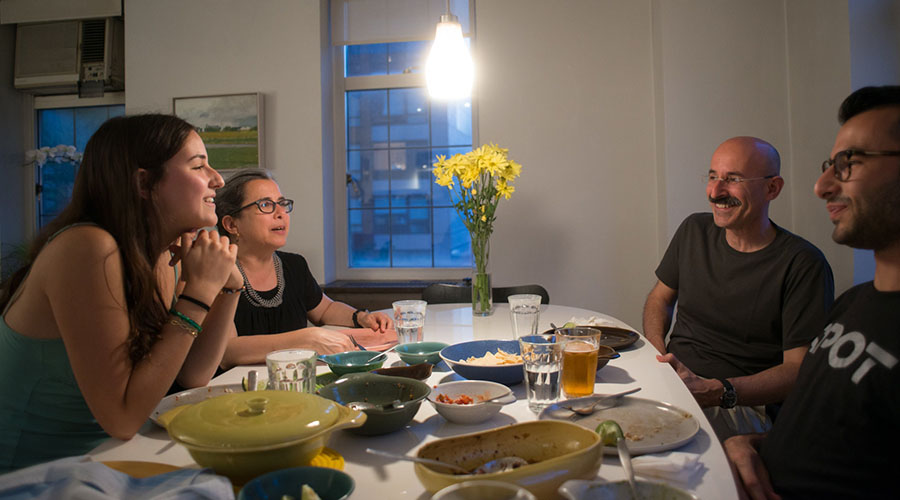
It’s a cost-effective option, as you won’t have to cover student accommodation or private accommodation rental fees. And homebodies, or those who get homesick really quickly, will appreciate this arrangement.
Others may feel that their son/daughter ought to experience university outside of the family home and that makes complete sense too. By this stage in life, it’s natural for your young adults to want to pursue independence and find their own footing in life. You might also need a bit of a break, and this is pretty normal in a parent-child relationship towards young adulthood.
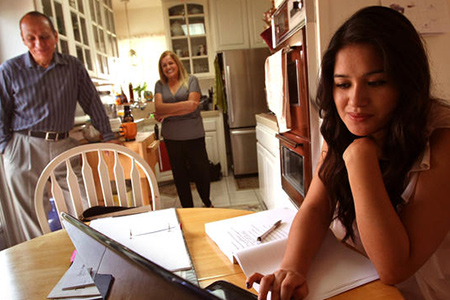

It can also be a bit chaotic to have a university student who wants to experience student life and stay out late to see friends and explore Cape Town, to return home at all times of the night.
It can also make attending on-campus events and activities a little bit of a struggle, especially if your daughter or son needs to travel a sizable distance to their campus from the family home. This takes them away from on-campus student life, which can feel isolating and make them feel excluded from student life.
Things to consider about staying at home
Staying at home is one of the easiest options for students, but as parents, it’s likely you’d like a break from daily responsibilities and tasks like making sure the fridge is always stocked or lifting your son/daughter to and from campus, events, and parties.
University is a completely different phase of life and for some parents, it may be crucial to set different boundaries relating to allowances, transport, and curfew hours so that the lines don’t get blurred in the future.
Living at home means that the basics are normally covered, including food, parking, WiFi, water, and electricity – and maybe a lift to campus every now and then.
As a parent, especially if your children start working part-time in their final year(s) of study, you may choose to ask for a monthly rental fee to cover some of what you would normally be paying for if they were living independently.
Finding and applying for university, student, or private accommodation
Depending on the type of accommodation you choose for your son or daughter, you’ll need to search for accommodation and apply using a few different methods. You can also find flexible payment plans and funding through NSFAS, should you be worried about how to afford to pay for your child’s university accommodation.
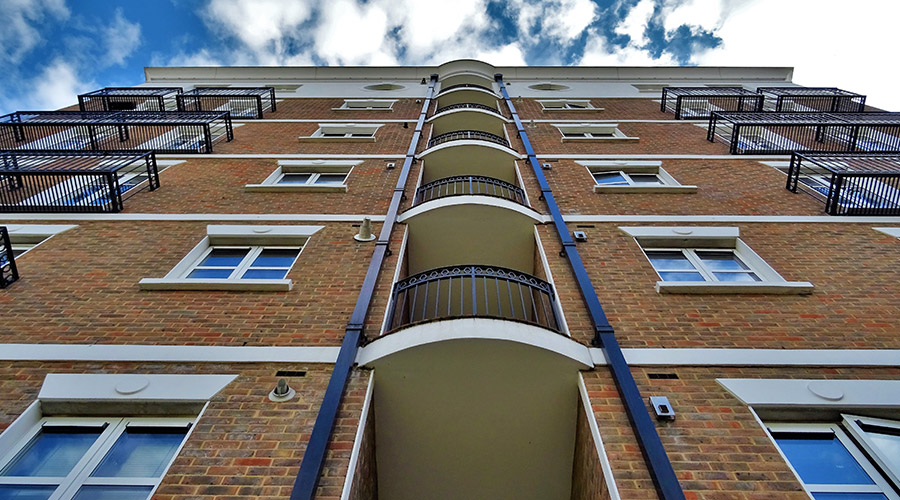
Private accommodation
Firstly, private accommodation – digs, flats, and houses which are separate to student accommodation, will require you to look through property rental websites, like Property24, PrivateProperty, or contact estate agents to get the ball rolling.
Once you’ve chatted to the agent, arrange a viewing with your son/daughter to get a feel for the place. See what you may be able to fit into the flat, or your child’s room within the flat/house, along with what’s included in terms of appliances and infrastructure like internet, and work from there.
We also have some easy additional tips before you sign on the dotted line to stay in your flat or shared house space in our article, 17 Things to Know Before You Sign Your First Lease.
University accommodation
University accommodation, residences, are typically quite hard to get into and require you to apply with sets of high school marks and your prospective subject of study, to be admitted.
Initially, your application process will start with you finding the right kind of university for your intended field of study. Once you’ve found your preferred university in Cape Town, it’s time to apply.
So, choose your favourite course and submit your application. Then select 2-3 more subjects that you would either like to study or use as fallbacks if you don’t end up getting accepted into your first choice.
These additional choices can either be related to what you would like to learn, or provide a stepping stone in terms of academic credits, to help you get into your preferred course the following year.
University residences applicants are normally chosen based on a variety of criteria, the most important being your marks. Marks are the single most important criteria to keep in mind years before applying for university.
Your child’s Grade 11 marks are always used for the first part of the application before you finish your preliminary and final Matric exams, which are used to supplement your application. So, make sure your son/daughter is putting in the hours to reap the rewards by the end of your matric year.
Student accommodation
Private student accommodation facilities are the easiest to apply to out of any university housing options.
Usually, this process includes submitting details about you, such as your I.D or passport, acceptance from your chosen university, and bank statements that reflect the right amount of earnings to support paying for your son/daughter’s university accommodation.
You may also be charged a small submission fee for your application, and if everything goes well – you’ll be asked to sign a lease by the end of the process. Lease terms are often more flexible with student accommodation, however, standard lease terms are for 6 months or 1 year.
Funding accommodation: University residences, Student accommodation, Private apartments
If you’re unsure how you will afford your son or daughter’s university accommodation, we would recommend having a look at NSFAS and submitting an application.
The NSFAS provides loans and bursaries for South African university students, to assist students in achieving their tertiary qualifications.
These loans and bursaries cover university courses and accredited student accommodation.
By accredited student accommodation, we mean residences of universities recognised by NSFAS, as well as private accommodation facilities that have been vetted and accredited by NSFAS.
Find out more about getting financial support from NSFAS for university education and accommodation.
Conclusion
With all the knowledge under your belt now, it’s time to make a decision about where your son or daughter will stay during their university years. Try to keep in mind factors such as your budget, the differences between different types of student accommodation, the location, and any travel costs, when deciding on student accommodation.
And always have a contingency plan!
Applying to different universities in Cape Town can be a bit stressful and you may not be guaranteed a spot on campus immediately, which can leave you in limbo and wondering whether you’ll have somewhere to stay once the first semester rolls around.
This can sometimes mean it’s better to stay in a building where you have a guaranteed place, which means you devote more time to finding the right course at your chosen university and getting everything ready for moving out and daily university life.
You may also want to bookmark our posts, Student Accommodation: A Survival Guide, and The Cape Town Student’s Guide to Meal Preparation to help you along your student journey once you’ve moved into your new place!
Private Student Accommodation With Nest
We’d recommend the modern apartments and facilities at NEST if you’re wondering where your son/daughter will stay when the first day of orientation comes around.
Nest offers university students living in Cape Town, quality private student accommodation situated nearby major transport routes and universities such as UCT, Damelin, AFDA, and Varsity College.
The secure facilities feature underground parking, a rooftop gym and viewing area, lounge areas and TVs, biometric fingerprint access, 24/7 security staff as well as an included 10 gigabytes of free WiFi per month.
Join us for a viewing, by calling or sending an email today!


